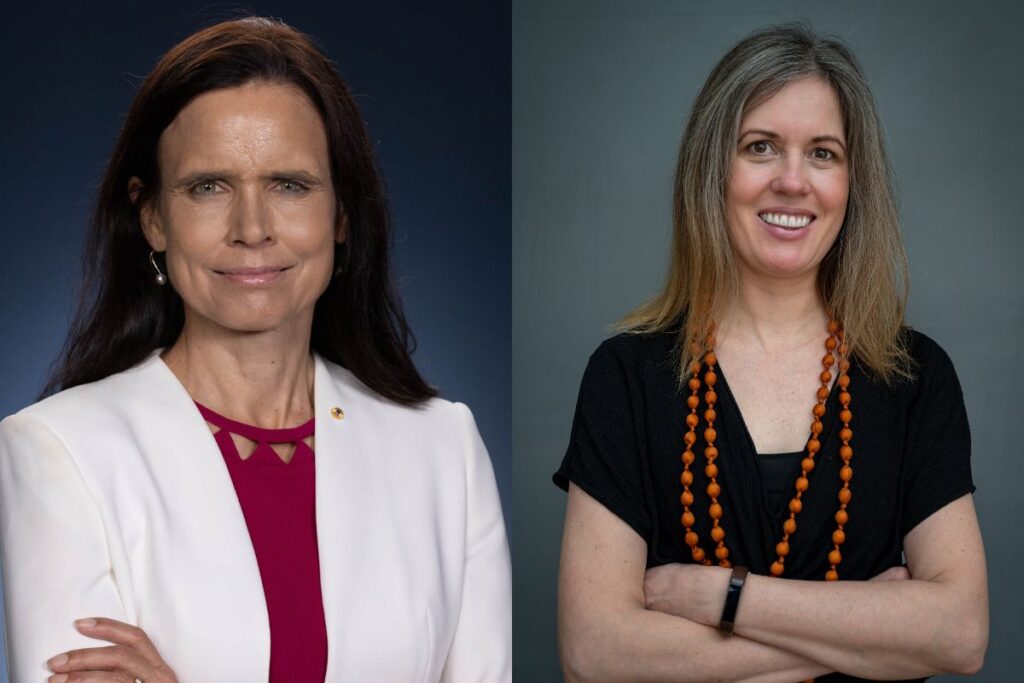Gender equality is key to security, sustainability, prosperity and peace. But despite all the talk, no country is on track to achieve gender equality by 2030, write Australia’s Ambassador for Gender Equality Stephanie Copus Campbell and Executive Director of Equal Measures 2030, Alison Holder.
Gender equality is both a standalone goal and a prerequisite for progress across the entire 2030 Agenda for Sustainable Development. Nearly three quarters (74 per cent) of the SDG targets are directly or significantly reliant on the achievement of gender equality.
The evidence is clear: more equal societies benefit from the insights, talents and contributions of the diversity of all peoples. More equal societies are less likely to face crises and are more resilient to crises when they emerge.
Gender equality is foundational to a secure and sustainable, peaceful and prosperous future.
Given its significance, has gender equality been given due attention since the SDGs were agreed? Is the world making progress towards eliminating gender inequalities and fulfilling the human rights of women and girls? Whether based on data, research or narratives of governments and advocates worldwide, the evidence tells a troubling story.
According to the Equal Measures 2030 SDG Gender Index, no country is on track to achieve gender equality by 2030. At current trends, we won’t achieve gender equality globally until the next century (the 2100s). A girl born today will have to wait until her 97th birthday – beyond the current expected lifespan – to live in a society without gender-based discrimination and oppression. A dismal scenario, where inequalities are cause and consequence of such interconnected crises as climate change, conflict, poverty, and hunger.
Disregard for both the universality of human rights and impacts of inequalities is evident in the strategic, organised, and well-resourced global anti-gender movement. Our international system’s longstanding commitments are being challenged, traded, and discarded. Working across borders, nefarious actors are coordinating attacks on sexual and reproductive health and rights, women’s human rights defenders, LGBTQIA+ advocates, and inclusive democracy. Technology-facilitated gender-based violence is being perpetrated to push women out of public, economic and political life.
The effects are evident in every country. Between 2019 and 2022, nearly 40 per cent of countries – home to over 1 billion women and girls in 2022 – stagnated or declined on gender equality indicators. If the backsliding gathers pace, gender inequality could be worse globally in 2030 than it was in 2015.
While the situation is challenging, progress towards gender equality is possible. Gains are holding in some countries, and recent global forums, including the Ministerial Conference on Feminist Foreign Policy hosted by Mexico in July this year and the World’s Women Forum in Mongolia in August, demonstrate a commitment to gender equality and efforts being progressed within countries and regions.
The private sector is increasingly demonstrating an understanding of the economic value of gender equality, including the innovation and productivity of a diverse workforce. In every country – across civil society, local communities, political parties, workers’ organisations – there are leaders, decision-makers and mobilisers centring gender equality in efforts to realise peace and prosperity, security and safety.
We need to build on the positive momentum of the many and the perseverance of women’s human rights defenders. After all, gender equality is crucial for our shared future, and it requires continued collective action and systems-level change.
In Australia, the systems-level changes include gender-responsive budgeting across the Commonwealth government; a national strategy for gender equality; legislating paid parental leave and domestic and family violence leave; and legislated requirements for employers having plans to close the gender pay gap. This means participatory and inclusive budget and policy processes that consider gender equality at the outset for the benefit of everyone. It also means international collaboration to ensure gender equality is centred across foreign policy, development programming, humanitarian assistance, trade and security efforts.
As world leaders gather this month for the Summit for the Future and later for G7 and G20 they must reflect that it will be impossible to tackle humanity’s most difficult challenges, including climate change, poverty, global health insecurity and conflict, if we exclude the lived experience and diversity of thinking of women and girls and if we do not draw on the talent of 100 per cent of the population, not just the 50 per cent that are men and boys.
Gender equality is not just the right thing to do. It is an essential precursor to achieving a sustainable future for all.
Stephanie Copus Campbell is the Australian Ambassador for Gender Equality, and a lead advocate for Australia’s work on gender equality and the human rights of women and girls. Ms Copus Campbell has extensive experience working across the public, private, philanthropic and community sectors in Australia and the Indo Pacific. She has served as head of Australia’s bilateral development cooperation programs with Papua New Guinea, Fiji and Tuvalu and head of Australia’s Pacific Regional programs and has held other senior executive and board director roles in the private and not for profit sectors.
Alison Holder, as the Executive Director of Equal Measures 2030 is responsible for the strategic direction and leadership of Equal Measures 2030. She has over 15 years’ experience in international development policy and advocacy, including with UNSDSN, ActionAid, Oxfam, Save the Children and Accenture.

